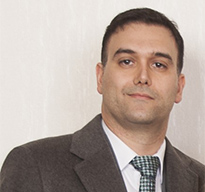Thermal-Hydraulics Design and Optimization
Disciplines: Completions | Drilling and Completions
Course Description
This one-day course is an introduction to gas-liquid flow patterns in horizontal pipes for complex case of steam at saturated condition at injector; gas-lifting at producers and steam hammer envelopes are discussed. Different two-phase flow mechanistic pattern maps such as Taitel–Dukler (1976) and Kattan–Thome–Favrat (1998) models and empirical methods such as Beggs and Brill will be discussed.
Topics:
- Gas-liquid flow patterns: What is the difference between gas-water and steam-condensate?
- Introduction to Steam Hammer: Does steam-hammer happen in producer or injector?
- Liquid Pool modeling: Is conventional IPR suitable for SAGD producer?
- Liner-Deployed FCDs modeling: How do you select proper FCD for a given SAGD asset?
- Analytical modeling of steam circulation: When do you convert from circulation to SAGD?
Learning Level
Intermediate
Course Length
1 Day
Why Attend
Thermal operations such as SAGD are dealing with complex and dynamic of multiphase-flow. Having steam at saturation condition is yielding the condition different from conventional practices which solution gas acts as ideal gas. Recently introducing new completions such as flow control devices (FCDs), there is an extensive need to predict the production performance of SAGD processes considering the production constraints and flow restrictions across chokes and orifices in FCDs. This course presents the fundamentals of multiphase flow, liquid pool IPR, and FCD flow restriction and their interactions.
Upon completion of this course, participants will be able to:
- Be familiar with fundamentals of multi-phase flow in pipe
- Carry out simple nodal analysis for SAGD injector and producer
- Make assumptions in different two-phase flow mechanistic pattern maps
- Be familiar with fundamentals of steam trap control and minimum subcool concept
- Understand benefits and limitations of implementation of FCDs for SAGD producer
Who Attends
This course is intended for production engineers, reservoir simulation engineers who need to model multi-phase flow in injector and producer, and technology development leaders that are involved in implementation of new completions such as FCD.
Special Requirements
Students will need laptops.
Participants should have understanding on one-phase flow such as its frictional pressure calculation.
Participants should have basic knowledge of Microsoft Excel.
Participants should have moderate experience or exposure to the topic.
CEUs
0.8 (Continuing Education Units) are awarded for this 1-day course.
Cancellation Policy
All cancellations must be received no later than 14 days prior to the course start date. Cancellations made after the 14-day window will not be refunded. Refunds will not be given due to no show situations.
Training sessions attached to SPE conferences and workshops follow the cancellation policies stated on the event information page. Please check that page for specific cancellation information.
SPE reserves the right to cancel or re-schedule courses at will. Notification of changes will be made as quickly as possible; please keep this in mind when arranging travel, as SPE is not responsible for any fees charged for cancelling or changing travel arrangements.
We reserve the right to substitute course instructors as necessary.
Instructor

Mazda Irani is acting as a CTO of Ashaw Energy. He is currently engaged in the designing and optimization of Steam Assisted Gravity Drainage (SAGD) and proper near wellbore modeling for the SAGD wells. One of his main tasks is to help and develop a software that can help operators run their SAGD wells at optimum subcool, manage the hot spots, and modify their FCD design in heterogeneous reservoirs. He published a trilogy paper named “On Subcool Control in Steam-Assisted-Gravity-Drainage Producers."
Dr. Irani was previously employed in technical and supervisory roles with Cenovus Energy, Suncor Energy, RPS Energy, and C-FER Technologies. He has published and presented more than 40 technical papers on different aspects of SAGD operation. Dr. Irani holds a PhD in petroleum engineering (U of C 2017) and geomechanics (U of A 2012) and three Masters degrees in petroleum engineering, geotechnical engineering, and structural engineering.
Other courses by this instructor
Mazda Irani
This 1-day course is an introduction to all analytical models assumptions and mathematical principles and their limitations and also discusses. In this course there will be examples using Excel spreadsheets. In this course solvent applications are not ...
(Read More)Disciplines: Reservoir
Mazda Irani
This 1-day course is an introduction to design and optimization of Flow-Control-Devices (FCDs) and to thermodynamics and pressure-volume-temperature (PVT) in horizontal wells in Thermal Recovery Operations for both SAGD and SA-SAGD. The interaction bet...
(Read More)Disciplines: Reservoir
Mazda Irani
This 1-day course is an introduction to analysis and design of the geothermal reservoir and wellbores. The following topics will be covered:
Analysis of Geothermal Reservoir:
- Introduction of geothermal reservoir
- Conduction and convection in the ge...
Disciplines: Reservoir
Mazda Irani
This 1-day course is an introduction to design and optimization of Inflow-Control-Devices (ICDs) in horizontal wells in conventional reservoirs. The gas-breakthrough and water-cresting/coning is the main reason of failures during such operations. The f...
(Read More)Disciplines: Production and Operations
Mazda Irani
This 1-day course is an introduction to thermodynamics and pressure-volume-temperature (PVT) and tuning parameters to fit laboratory data. Different analytical models for oil rate predictions such as Butler-Mokrys (1989) and Dunn-Nenniger-Rajan (1989) ...
(Read More)Disciplines: Reservoir
